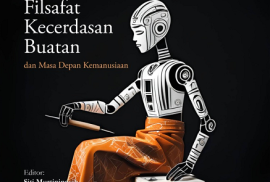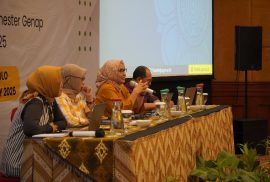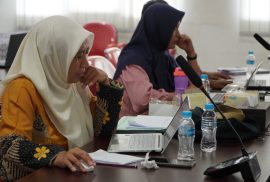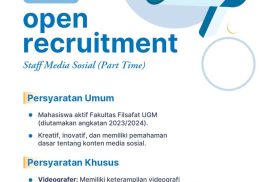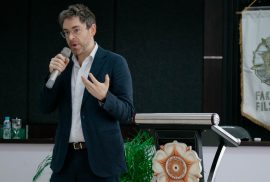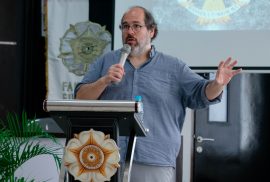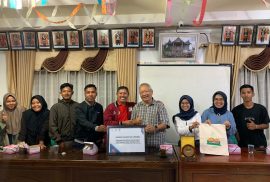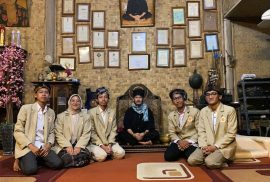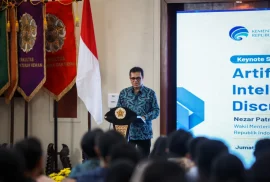As part of the Philosophy Book Fair 2025, the Faculty of Philosophy of Universitas Gadjah Mada (UGM) held a discussion entitled “AI for Media, AI for Journalists” on Friday, 31 October 2025. The event featured three speakers: Prof. Dr. Rr. Siti Murtiningsih, Dean of the Faculty of Philosophy UGM; Eko S. Putro, Director of Pandangan Jogja; and Haris Firdaus, Head of the Central Java–Yogyakarta Bureau of Kompas.
In her opening remarks, the Dean of the Faculty of Philosophy raised ethical concerns arising from the use of artificial intelligence in newsrooms. She questioned the increasingly blurred boundary between human-produced and machine-generated work, and described a scenario in which a newsroom produces news automatically, without human reporting. “Imagine a situation close to a deadline where a machine merely aligns a script and uploads it. When such content is reproduced continuously and accepted by the public as knowledge, what kinds of problems will emerge?” she asked.


